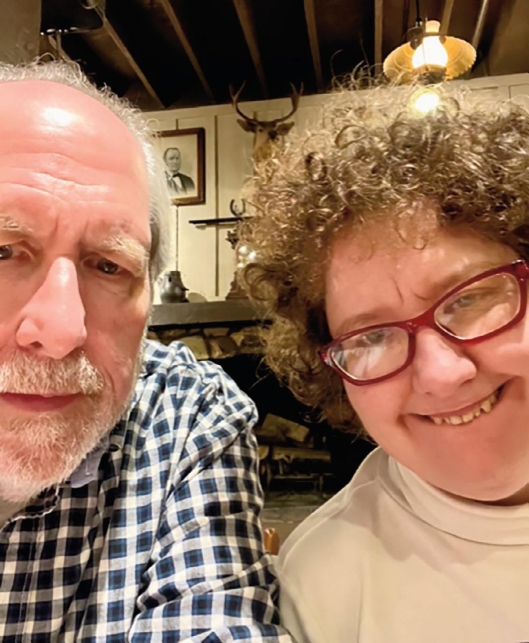receive the necessary services to help them along their life journey: academic assistance, therapeutic services (speech, physical, occupational, behavioral, adaptive sports, etc.) and access to assistive technology. Most importantly, our parent advocacy must be directed at helping prepare our children for a full life as an adult.
You and your child must become your own lifetime advocates! There's a great phrase in the world of self-advocacy – "Nothing About Us, Without Us!"
If you go back to the 1960s, the future for many people with disabilities involved moving into large institutional settings of group care. Inspired by the civil rights movement, many people with disabilities and their allies advocated for their right to a self-determined life in a community setting. Not everyone is the same and this uniqueness must be recognized. In the past, the individual had to adapt to the institutional system’s structure. Now self-advocates have insisted on a person-centered approach. While this is a noble goal, it’s not one that’s easily achieved without intensive advocacy from the individual and their family.

MAKING THE DREAM WORK: See yourself and your child as partners in the system of supports. It's a lot of work, but you already know that, being "Exceptional Parents."
Planning for the adult world should begin as early as possible, You and your child must become your own lifetime advocates! There's a great phrase in the world of self-advocacy – "Nothing About Us, Without Us!" even though your child's date for moving on from high school may seem to be in the distant future. The worst time to ask for help in improving reading or social skills is six months before the person starts school. Start earlier! It's your and your child's rights! Educate yourself and your child. Know your rights in the educational and adult care system. You and your child must become your own lifetime advocates! Self-advocates and their families must be involved in every decision! There's a great phrase in the world of self-advocacy – "Nothing About Us, Without Us!"
Your child with disabilities should be part of all planning meetings, whenever possible, even if it is difficult for them to actively participate. It is important that members of Special Needs Committees (also known in many schools as the Committee on Special Education (“CSE”)) see your child as an individual, as a person, and not just some impersonal name and diagnosis on an IEP form. It is much more difficult for a committee to limit services if they must explain themselves to the person needing the services, along with their family.
See yourself and your child as partners in the system of supports, whether in the K-12 educational system, or the adult system of supports. Be actively involved with teachers, therapists, school committees, case managers, etc. It's a lot of work, but you already know that, being "Exceptional Parents."
The adult system of supports – housing, employment counseling, transportation, academics, social networks – is not as robust as the K-12 educational system, so it is important for the family to advocate for their child, but also to teach their children strong self-advocacy skills. For example, in the K-12 settings, some students have a paraprofessional aide. That is a rare occurrence in adult systems, so planning must begin early to explore alternatives.
All of us continue our learning adventure. No one stops learning just because their educational experience ends at twenty-one or some other arbitrary date. Make sure that everyone understands that it is impossible to measure a person's life potential. No one is static!
People with cognitive disabilities need concrete experiences to help them make choices and learn new skills. Important life skills are best learned by doing, and not just by viewing a video or simplified text. Your child needs to learn how to use the bus system? Have someone take your child on a bus ride. Help your child understand how to get off at the right stop and learn to ask the driver for assistance, if needed.
If the student uses some type of assistive technology, make sure the tech is available to your child after they leave high school, and that adult support staff are familiar with its use, and are trained to help the person successfully use the technology. On several occasions, I have seen a communication device locked in a cabinet, unavailable to the person, because the adult care staff received no training in the use of the device.
Think back to when you were young and starting in the work world. What was you first job? Is that the job that you have today? Probably not. Why should we expect people with disabilities to decide on a vocation, when they have no practical life or work experience? Much of success in a job is due to good social skills. No matter what the job, if you are late or frequently absent, or can’t follow directions, success is improbable. Vocational supports for people with disabilities are available and you should enroll your child, as early as possible, and demand help with job-related skills, but also sophisticated social skill training.
If your adult child isn't ready for a job after high school, there are many providers of adult day programs that can help a person develop their life and vocational skills. Just make sure that you and your child visit the programs and ask for a trial experience. You want a